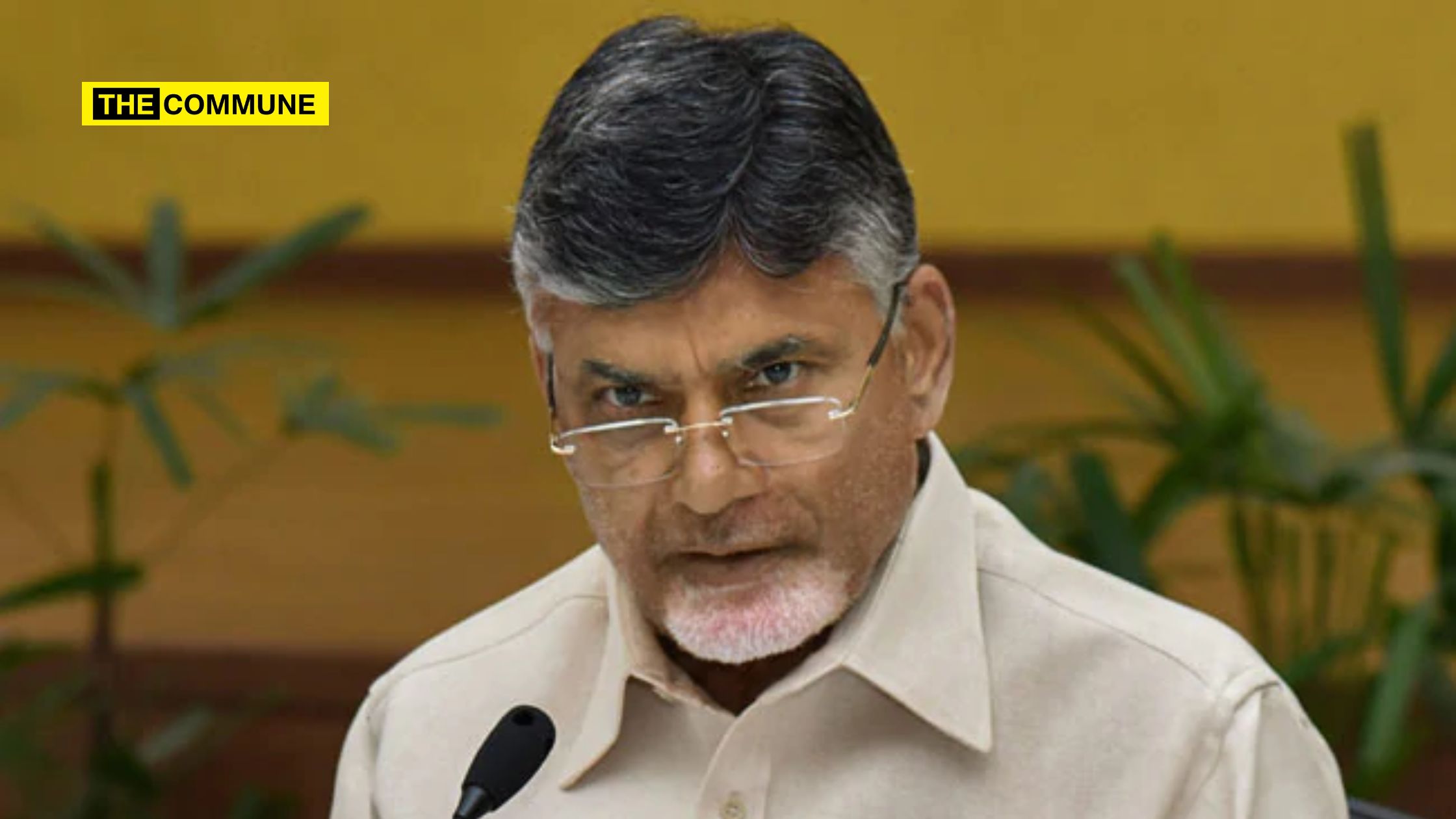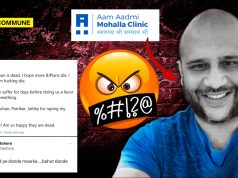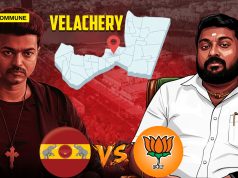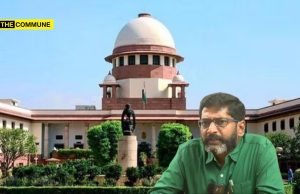
Andhra Pradesh goes to the polls, both at the state (assembly) as well as the national (Lok Sabha) level on May 13, 2024. In both the state and national elections, the TDP (Telugu Desam Party) is predicted to bag a significant number of seats, likely uprooting the incumbent YSRCP party. Its individual standing appears strong enough at the moment, considering the numerical strength of the masses choosing to attend and participate, in its political rallies. However, it has prudently decided on an alliance with the BJP and the JSP (Jana Sena Party) for a handful of carefully considered reasons.
The party’s leadership has openly stated that its decision to request being a part of the NDA alliance in Andhra, is highly motivated by its strong desire to defeat the incumbent YSRCP with certainty, a party that has focused on populist welfarism at a steep cost to the state’s development and future.
Veteran politician, Chandrababu Naidu’s TDP is expected to carry most of the forward-class vote and the back-class vote while Jagan Reddy’s YSRCP is expected to be a favorite with the minorities and the scheduled castes (SCs). TDP’s thoroughly considered, strategic alliance with the JSP will ensure the coming together of almost all backward classes in Andhra while its alliance with the BJP hopes to ensure a united vote from all the upper classes, the educated and a new class of people from across both forward and backward classes, which favours a cultural, Hindu renaissance of sorts….a newly emerging class of Hindus coming together, irrespective of caste and class divisions, for a common dharmic/ Hindu cause against the background of aggressive Christian and Muslim conversion tactics.
The YSRCP is simply a break-away faction of the Congress party, with many of its leaders and its core ideology, clearly reflecting a typical Congress political formula, relying on minority appeasement and a vast number of financially unfeasible ‘welfare’ schemes for scheduled castes.
In contrast, the TDP believes in social upliftment and better economic opportunities provided across all communities and castes, without particular favoritism towards one or two communities. It was formed in 1982, by the much loved and respected Telugu actor, N T Rama Rao, based on the ideals of equal economic opportunities for all as well as social equality for all communities, in addition to a recognition of and pride in, a unique Telugu culture, language and heritage.
While the TDP is similar to the Congress and most other Indian political parties including the BJP, with its social-equality aspirations, it differs significantly from the Congress, in terms of encouraging private enterprise, investments and job creation. Like the BJP, the TDP prefers to engage in social upliftment and adequate aid to historically disadvantaged communities on the one hand while on the other, it encourages private enterprise and job creation in the private sector for long term economic benefits and a healthy fiscal balance.
Unlike the Congress with its complete focus on communist-like control on governmental hand-outs, populist welfare schemes and a tight leash on private enterprise along with its patronage of a slow, inefficient bureaucracy, top TDP leaders like N.T. Rama Rao and N Chandrababu Naidu resemble Mr. Modi and his top leaders, in their policies for economic growth, fewer government controls, more freedom to private enterprise and their higher expectations from government employees and bureaucracy, in terms of sincere, good quality work and efficiency.
Like the BJP, the TDP’s governance track record thus far, indicates its belief in certain individual freedoms, creativity and ambitious goals coupled with larger societal issues handled with limited aid from governmental departments. In other words, both the BJP and the TDP practice and govern with principles of socialism within the larger context of a capitalist-driven economy for long term, self sustaining economic growth and financial health.
In both its higher-than-average fulfillment of its promised social schemes and its encouragement of private industry and job creation, its vision, economic goals and its track record in implementing poll promises, the TDP is closer to that of the BJP.
In the “business” of winning elections, a party like the TDP with a similar vision as that of the BJP, should refrain from bending to the pressures of extreme welfarism and minority appeasement just to compete with the Congress, the YSRCP and the Communists.
Much like the BJP, the TDP tries to balance the need for social welfare across all communities on the one hand and providing opportunities for industrial, business growth and job opportunities, on the other. Hence, it would do good for the TDP to publicly acknowledge its ideology as one that aligns with the BJP’s – doing so will help the electorate understand A.P’s NDA alliance, on the grounds of similar social, economic, financial and cultural goals, rather than a mere political convenience. Doing so, will ensure its political stability in the longer run and attract a section of people loyal to its very own, distinct social and economic ideology.
The major difference between the TDP and the BJP as far as ideology goes, is that of Hindutva – an envisioned cultural unity based on common history, culture, ancestry and genetic disposition with the proud acknowledgement of the Vedic Hindu religion as the bedrock of Indian philosophy and spirituality. Would the TDP hesitate to publicly announce its support for Hindutva for purely political reasons? Alternatively, is it time for Naidu’s party, to take a calculated risk, strategize and send out a loud, clear message of “cultural unity among diversity”, a message of nation first, a message of freedom for individual faith/beliefs yet along with an acceptance of common cultural and ancestral unity?
The TDP was formed in 1982 as an anti-Congress alternative for the Telugu people in the state of united Andhra Pradesh (Andhra and Telangana after the division of the larger state). In the 1983 united-Andhra Pradesh elections (the TDP’S first ever elections), the darling of the Telugu masses, N T Rama Rao put Indira Gandhi’s Congress party to shame with first massive victory of almost seventy percent over the Congress, which had not lost a single election up until then, in the state.
The TDP fought on the planks of “Telugu Pride”, native Telugu culture, language and social justice. The TDP’s first victorious mandate in 1983, came on the wings of a state-wide realization of the Telugu people, that the Congress had always taken them for granted – easily bagging the required electoral numbers from the larger, undivided state, because there had been no other political alternative to it, before the creation of the TDP party. Despite their many unchallenged electoral victories before the advent of the TDP, the Congress leaders from the undivided state, rarely demanded the state’s fair economic, indistrial, financial, educational share from the Centre. The Congress’s A.P leaders had accumulated massive personal wealth yet barely did anything for the state in terms of economic and educational opportunities as well as social upliftment in comparison to what its South Indian neighbours of Tamil Nadu and Karnataka were able to accomplish for themselves.
The anti-Congress legacy of the TDP and its core ideology of a balance between welfarism and business development, brings it closer to the vision and mission of the BJP than that of the Congress party. It’s time for the TDP to take a stand. It will do well to differentiate itself clearly and confidently from all the other Congress-type of Left leaning, pseudo secular parties.
The TDP could be a proud, regional, linguistic party which chooses to openly align itself with a national party of similar socio-economic and cultural goals. It could and should go all the way in embracing the BJP’s cultural vision of a Hindutva that places patriotism, nationalism and a shared, unified Indian cultural identity, above all individual divisions and identities such as religion, region, language, class and caste.
Shivani is a freelance writer from Vijayawada.
Subscribe to our channels on Telegram, WhatsApp, and Instagram and get the best stories of the day delivered to you personally




